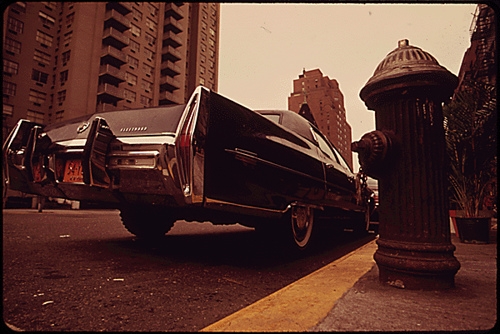
It's moving time. And you're looking at car transportation options. In your considerations you're presented with two options: Using a car dolly or a car carrier. There are the advantages and disadvantages to each choice. Understanding these things will boost your traveling budget or save your car from damage.
A car dolly is small trailer that is connected only with the front two wheels of the car or truck that's being towed. The rest the car is allowed to drift behind behind the trailer with its rear wheels rolling along the ground.
A car carrier, unlike a car dolly, supports the entire car. Car carriers come in a variety of options from simple open trailers to large enclosed multi-car trailers towed by diesel trucks. Option for this choice could include paying a professional car carrier to tow your vehicle or renting a small trailer and towing it yourself.
Using a car dolly is a great way to transport your vehicle if you're primary goal is too keep your costs down. This choice of transport is far lighter than a car carrier and will require less gas in the long run. This is also a good choice if you are driving a short distance as it is easier manage than a full trailer.
The disadvantage of using a car dolly is the fact that your vehicle has a greater chance to be damaged because it is allowed to dangle as you pull it along the road. People who showcase cars or who have a unique should avoid using car dollies because they lack security.
This is the most secure way to carry a vehicle. All four wheels are off the ground and the car is firmly placed on a stable platform. And if using a professional car carrier you are spared the inconvenience of towing the vehicle yourself--which is saying a lot. The downside to this is of course price. Gas prices will be rocketing upward if you do decide to tow it yourself and if you pay a professional costs will be even more expensive.
For each trailer you must meet the basic qualifications for towing; for example, a vehicle that is lighter or equal weight of the vehicle its towing does not meet the basic towing standards. Some other things that are important are tire width, hitch ball size, whether your vehicle has a hard top and the size of your cars body width. For more information it's best to consult the towing agency you will be renting or buying from.